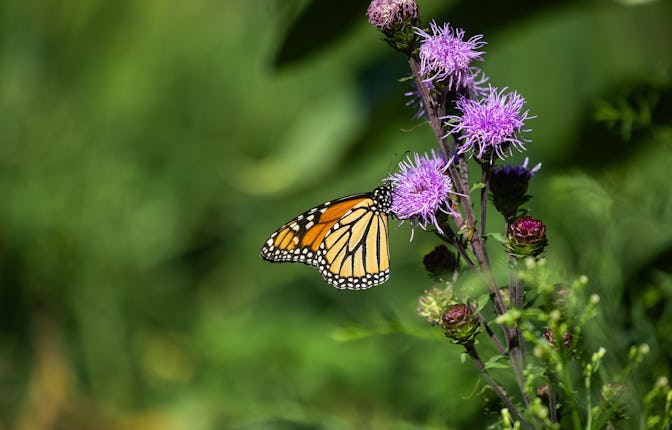Monarch Butterflies On The Brink Of Threatened Status
Scientists raise the alarm — and everyone is listening.

The majestic monarch butterfly, known for its vibrant orange and black wings, has captured hearts and inspired countless nature enthusiasts. However, recent developments signal a troubling reality: the U.S. Fish and Wildlife Service has proposed listing the monarch as a threatened species under the Endangered Species Act. This significant move highlights a dramatic decline in their population, pushing these iconic insects closer to extinction.
A Call to Action from Conservationists
The journey toward this proposal began back in 2014 when conservationists raised alarms about the dwindling numbers of monarchs. Their concerns were rooted in alarming statistics; over the past few decades, populations have plummeted by an estimated 90%. This decline is not just a number — it's a stark warning about ecological health and biodiversity.
Factors Contributing to Decline
So, what's causing this decline? Environmentalists point to several key factors:
- Climate Change: Warmer temperatures disrupt migration patterns and breeding cycles. Monarchs rely on specific climatic conditions for their long migrations from North America to central Mexico each winter.
- Agricultural Expansion: As farmland expands, natural habitats are lost. The conversion of meadows into monoculture crops has severely limited food sources for adult butterflies as well as milkweed plants that caterpillar larvae depend on.
- Herbicides: The use of herbicides in agriculture has led to significant reductions in milkweed populations—the sole host plant for monarch caterpillars. Without milkweed, there’s no place for these caterpillars to grow.
Proposed Protections Under the Endangered Species Act
The proposal by federal wildlife officials represents a critical step forward in protecting these butterflies. If approved, it would designate parts of seven California counties as critical habitat where western monarchs migrate during winter months. This designation aims not only to protect existing populations but also to restore habitats that are crucial for their survival.
The U.S. Fish and Wildlife Service plans an extensive public comment period before officially adding the monarch butterfly to the threatened species list by next year’s end. This process allows citizens, experts, and stakeholders alike to voice their opinions and contribute valuable insights into conservation strategies.
Why Monarchs Matter
Monarch butterflies are more than just beautiful insects; they play an essential role in our ecosystem as pollinators. Their decline could have ripple effects on various plant species that rely on them for reproduction. Moreover, they serve as indicators of environmental health — if they’re struggling, it’s likely other species are too.
While this proposal marks a pivotal moment in conservation efforts for monarch butterflies, it is just one piece of a larger puzzle. Continued advocacy from environmental groups combined with individual actions can help ensure that future generations will witness the breathtaking sight of these butterflies fluttering across our landscapes.
What Individuals Can Do
As individuals passionate about saving our planet's biodiversity, there are steps we can take:
- Plant Milkweed: By planting native milkweed species in your garden or community spaces, you can provide essential habitat for monarchs while also supporting local ecosystems.
- Reduce Pesticide Use: Opting for organic gardening practices can help minimize harm to butterflies and other beneficial insects.
- Spread Awareness: Share information about the plight of monarch butterflies with friends and family or through social media channels; awareness is key in driving change.